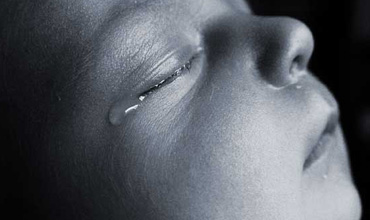A Nursing Research to Investigate the “Perception of Women at MPOBI Town on Criminal Abortion and its Effect”

Abstract:
Criminal abortion is common among women despite its effects; physical
psychological and physiological. This research was conducted at Mpobi community
of Aboaso in the Afigya Kwabre District in the Ashanti region, of Ghana. The
aim of the research was to determine the perception of women at Mpobi community
on criminal abortion and its effects. A simple random technique was used to
select the area from other localities. By this method each area had an equal
chance of being selected. After selecting the area, an accidental method was
used to select thirty women from their various homes. With this method, a data
was taken from the women who were available and meet the research criteria. The
target population was on women from age of 13 and above. A designed
questionnaire was administered on the sample. Analysis of data was by
transforming the raw data into statistical forms such as figures, tables and
percentages.
The findings indicated that the issue of criminal abortion was high among
adolescents and married women who have too many children; however knowledge on
criminal abortion among the women were adequate.
The main factors accounted for the high incidence of criminal abortion in
the community were, having too many children, what perception is and how does
person channel it appropriately and contraceptive failure.
Base on the findings some recommendations were made which included;
The government should develop solid policies to restrict criminal
abortions, expand and provide well equipped laboratories in most remote clinics
and hospitals in communities for easy access to be checked for which family
planning method is suitable for each person.
The affluent, private thriving businesses and NGO's should come
cooperatively to aid and make family planning methods, screening and
medications free or at least cost a penny for to aid prevent criminal abortion.
There is a need for proper education about the harmfulness of criminal
abortion and the after effects of abortion. Proper education, awareness,
training session and guidance should also be given to the people who are
involved in criminal abortion about the after effects of the abortion.
Family planning methods should be taught to the adolescent by their
immediate parents, guardian and any other respected people in the community.
The church and various Religious faith should be endowed with
knowledgeable personnels who can help assimilate to the adolescent the
righteous acts of not ending the life of a growing foetus on the account of
unexpected results from gratifying the fleshly unsuccummable strong desire for
sex.
The adolescent should be raised well with proper standards to bring in
consciousness that what one perception starts from the heart through the
sensual gates of the body especially the eyes, so as to gain requisite
knowledge, self-help and channelling the perceived thoughts with the
appropriate approach.
Illegal abortion cases should also be restricted by paying attention to
the lifestyle of our growing female wards. The government, persons and personnel
and the matured should each play his role in this regard.
References:
[1]. Ahiadeke C. (2001), International
family planning perspectives, 27 (2):96-10 and 108.
[2]. Akbar (1998), juries in criminal trials,
retrieved on 4th May, 2013. From www.Lawcom.Govt
[3]. Begum (1991), Obstetrical and gynecological
society of Bangladesh p. 53. Cooper, A.M and Fraser, M.D., (2009), Myles textbook
for midwives (15th Ed.). London, Churchill Livingstone.
[4]. Grossman D. (2012), the Texas tribune,
Mexico, www.Nytimes.Com2012/08/12.
[5]. Guttmacher A. (1999), Into a New World:
Young Women's Sexual and Reproductive Lives, New York.
[6]. Huntington D. (1998), Advances &
challenges in post abortion care operation Research Summary Report of Global Review,
One Dag Hammarskjold Plaza, New York
[7]. Kamala H. (1997), retrieved on 4th
May 2013 from en. Wikipedia. org. /wiki/Abortion.
[8]. Khokhar A and Gulati N. (2008), India
journal of community npccd. Nic / reports/eag Pdf.
[9]. Kolstad B. (1997), Monograph on health
effect, retrieved on 4th M ay, 2013 from ntp. Niehs.nih.gov/
NTP/ohut/lead/ fin page 42
[10]. Leon F. (1967), Abortion deaths in “California”
American journal of obstetrics and Gynecology.
[11]. United Nations, the World's Women
(1995), Trends and Statistics, New York, Table 6, p. 85.
[12]. Utah (2002), reasons for abortion, retrieved
on 24th May 24, 2013
.www.healthplus24.com/miscarriage.
[13]. Varkey S.J and Fonn S., (1999) Assessing
the implementation of abortion retrieved on 24th May 2013,
www.healthlink.org.
[14]. Wikiaanswers.com, www.wikipaedia.com. Retrieved on 4th May, 2013.
[15]. World Health Organization WHO (1997), Abortion: A Tabulation of Available Data On the Frequency and Mortality of Unsafe Abortion, Geneva, 1994, Table 3, p. 8.

